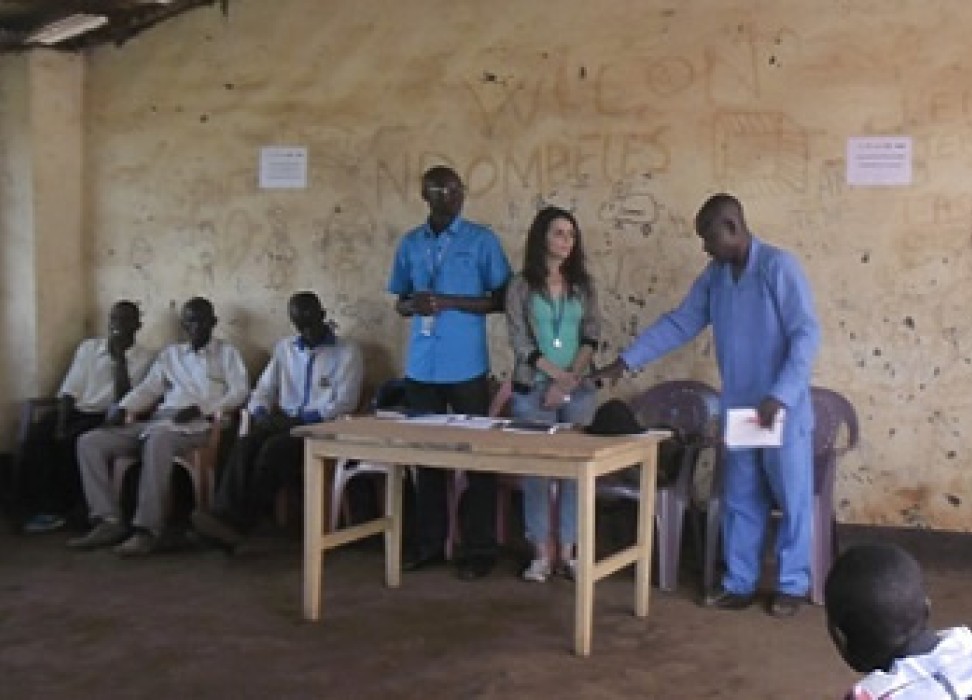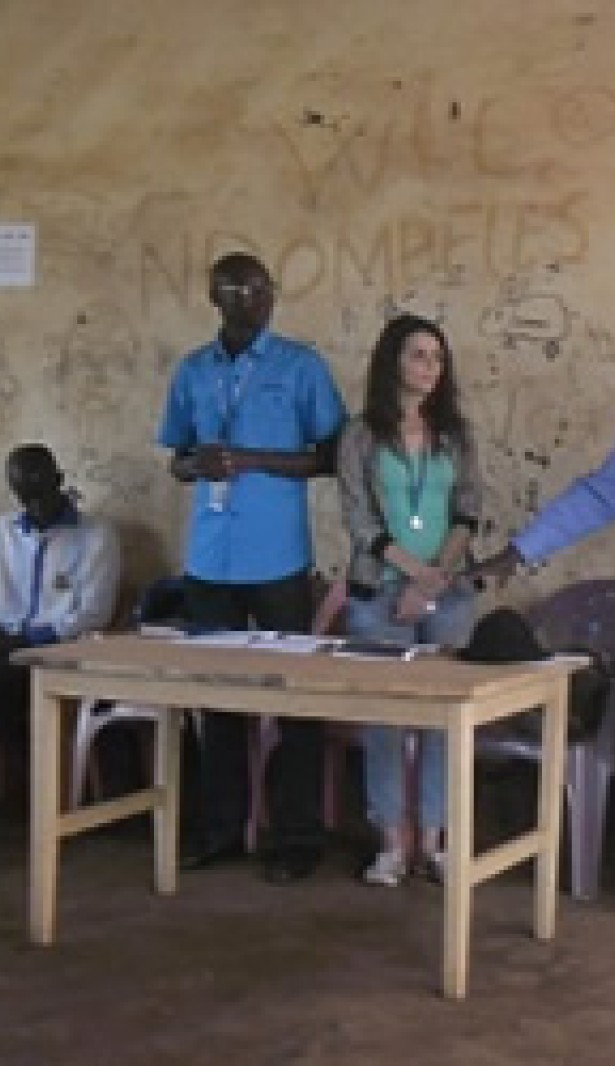Witchcraft in a modern age: broken communities and recalcitrant stigma
10 December 2015

There is usually something behind defamatory accusations: an easy, vulnerable target; envy; or even superstition.
For women accused of witchcraft among the populations displaced by the recent ethnic and religious conflict in the Central African Republic (CAR), it is often a combination of all these factors; older women are abandoned by the families because of the burden they represent and left with no support in their community; girls as young as five years old, are accused of having inherited the “sorcery gene” from their mothers or their neighbours; or enterprising women are said to be earning a living too decent to be natural in times like these.
After having received reports of violent and even deadly attacks against women and men accused of witchcraft, the Human Rights Division of the UN Integrated Missions for the Stabilization in Central African Republic carried out a series of activities to raise awareness about women and girls’ rights.
The Office has also been advocating with decision and law makers for the prevention of gender-based violence, and reminding the authorities of their obligation to protect individuals from mob justice and investigate and prosecute perpetrators of such crimes.
The local office of the Human Rights Division in Kaga Bandoro and the Association for Sustainable Development in Rural Areas in CAR organised an informational session on violence related to witchcraft accusations at the internally displaced persons’ camp of Bamou, 3km south of Kaga Bandoro. The makeshift camp houses 2723 people.
“Often, when an elderly and destitute woman asks a young person for food and if that young person happens to fall ill, the population usually immediately accuses her of being a witch,” said one woman attending the session.
Women and girls accused of witchcraft suffer the most cruel, inhuman and degrading treatment which strips them of all the human dignity they had left. They are mostly the victims of mob justice characterized by stoning, the forced administration of poisonous substances, flogging, and burying people alive. Victims have also been exposed to flames after being tied and bound, or forced to pay fines in the form of money, cattle, or their agricultural produce. Others whose lives are spared are victims of arbitrary arrest and detention.
During the session, facilitators stressed that mob justice is not only contrary to human rights law, but also prohibited under Central African law.
“No one has the right to take justice in their own hands,” said the human rights facilitators. “Together let us turn to the principle of Zo Kwe Zo (Any human being is a human being). That is the motto of the Central African people.”
The Penal Code of the Central African Republic contains provisions against quackery and witchcraft. Articles 149 and 150 state that a fine of up to 1,000,000 CFA francs (USD 1670) and a sentence between five and ten years imprisonment will be imposed on whomever is found guilty of practicing witchcraft which results in bodily harm to their victim; or a life sentence of forced labour if those practices lead to the death of their victim.
In his report from May 2010, the then UN Special Rapporteur on extrajudicial, summary and arbitrary executions recommended the revision of these provisions as they reinforce social stigmatization and lead to the persecution of women and children.
Participants in the session agreed with this recommendation. A male participant also suggested that such awareness-raising be given to the armed groups, specifically the Anti-Balaka who, according to him, are often at the root of the violence.
“We are here to raise awareness, to educate people on human rights and support the country’s efforts to reinstall authority. You can report to us or your community leaders every such violation in your community. It can save lives,” the facilitators said.
This story is published as part of the 16 Days of Activism against Gender-Based Violence, which runs every year from 25 November (the International Day for the Elimination of Violence against Women) to 10 December (Human Rights Day). The international campaign calls for the elimination of violence against women and invites everyone to take action.
10 December 2015

